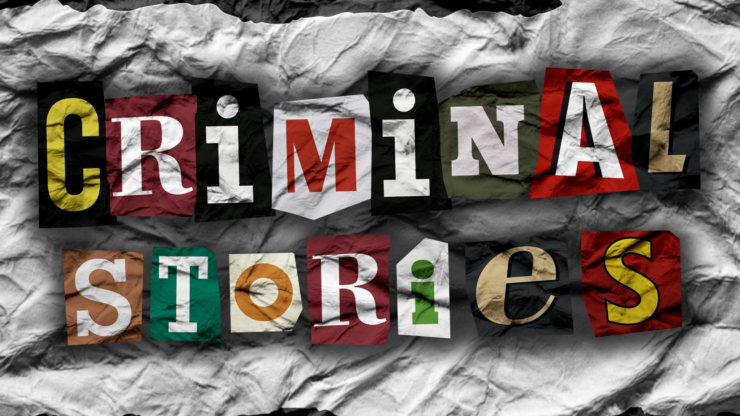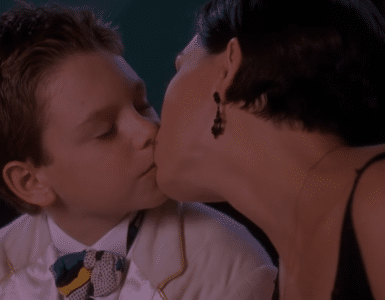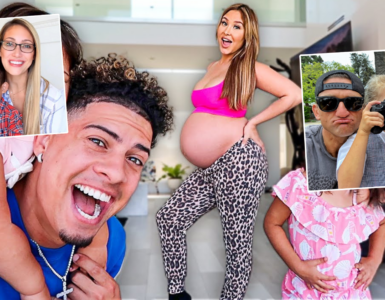True crime has been a popular genre since at least the 1600s when people in Britain were reading true crime pamphlets and ballads. Before the internet existed, people watched true crime shows like Unsolved Mysteries and America’s Most Wanted.
If you look at old true crime documentaries and compare them to newer ones, it might seem that not much has changed in the true crime genre aside from the format it’s consumed in and the video quality. Serial killers like John Wayne Gacy and Richard Ramirez are still showing up in popular videos, shows, and documentaries. High-profile court cases with beautiful celebrities and villainous rich people are still capturing the public’s attention.
What has changed in recent years, however, is the rise of ethical true crime videos and podcasts that respects victims, survivors, and their families.
Recently, there have been so many articles and videos that question the ethics of true crime content. Social media has given a voice and platform to survivors and families of victims, which has given them more encouragement to speak out when they see an offensive video or series that exploits their story.
When Netflix’s Monster: The Jeffrey Dahmer Story started streaming, families of Dahmer’s victims spoke out against the series.
Rita Isbell, the sister of Errol Lindsey, who was one of Dahmer’s victims, watched Monster: The Jeffrey Dahmer Story and saw a reenactment of the victim impact statement she delivered during Dahmer’s sentencing in 1992, which understandably upset her.
In an interview with Insider, Isbell stated, “When I saw some of the show, it bothered me, especially when I saw myself — when I saw my name come across the screen and this lady saying verbatim exactly what I said.
“If I didn’t know any better, I would’ve thought it was me. Her hair was like mine, she had on the same clothes. That’s why it felt like reliving it all over again. It brought back all the emotions I was feeling back then.”
Isbell also mentions how Netflix never bothered to reach out to the victims’ families, saying, “I was never contacted about the show. I feel like Netflix should’ve asked if we mind or how we felt about making it. They didn’t ask me anything. They just did it.”
Netflix is a massive corporation that made $29.70 BILLION in 2021 alone. The company has more than enough resources to contact families and get their consent and input before giving the green light to a documentary about a true crime victim. They should also offer compensation to the victim’s families if they’re going to make money from their story.
Isbell highlighted this issue in her interview, “It’s sad that they’re just making money off of this tragedy. That’s just greed. ”
That is the main argument against most true crime content. It exploits victims for money and views and nearly always glorifies the perpetrator while only focusing on what was done to the victims instead of who they were and showing them as real people.
It’s also painful and retraumatizing for survivors and the victims’ families to come across a true crime video, series, or podcast that tells their story without their consent and even gets facts wrong. They end up having to relive the gory details of the worst moment of their life without so much as a warning.
Larger Context
Discussing the ethical issues with true crime is not meant to shame anyone who likes it. Like 50% of Americans, I enjoy true crime and watch a lot of YouTube videos and listen to several podcasts in that genre.
Because I grew up watching sensationalist TV shows and news reports, I initially consumed true crime content without thinking about its ethical implications. But after hearing podcast interviews with survivors and the families of victims, I began to think about the ethical implications of sensationalist true crime.
In the podcast interviews I listened to, the survivors and families, who were finally allowed to speak for themselves, discussed how hurtful it is when a true crime channel, podcast, or news outlet exploits their dead or missing family members for views. More often than not, these stories are being told without the consent of surviving family members and it can be jarring for them to come across a story they know firsthand that gets it all wrong.
This led me down the ethical podcast and YouTube channel rabbit hole. There are a lot of great podcasts and channels that discuss true crime in a responsible way that respects the victims and their families. Some of the podcasts on this list are hosted by survivors or the family of a victim.
Here are 10 of the best ethical true crime podcasts and YouTube channels.
Recommended Ethical Podcasts
1) Voices for Justice
This is the very first ethical true crime podcast I started listening to and it’s still my favorite. Voices for Justice is hosted by Sarah Turney. Sarah’s dad, Michael Turney, murdered her half-sister Alissa Turney. Before murdering Alissa, he used to stalk her, sexually assault her and be extremely abusive, manipulative, and creepy.
It took 19 years and Sarah having to go viral on TikTok for Michael Turney to finally be arrested for Alissa’s murder. Sarah talks about Alissa’s case in detail in the first season of her podcast.
Alissa’s story is heartbreaking and still haunts me to this day. The only silver lining is that Alissa’s murderer is in jail, hopefully for life. Michael Turney should finally stand trial sometime this year.
Sarah now advocates for other victims and their families. In her podcast, she gets permission from the victims’ families to discuss a case unless the family are suspects in the murder or disappearance of the victim.
She also frequently interviews survivors and the family of victims, as well as specialists involved in the cases that she covers. I highly recommend listening to the most recent podcast episode with Terra Newell who also has a podcast that is on this list.
At the end of every episode, Sarah does a call to action to encourage listeners to help the victims and their families by raising awareness of unsolved cases. Sarah also has another great podcast called Disappearances which talks about missing person cases from the past and present. It is very respectful and well-researched.
2) Survivor’s Guide to True Crime
This podcast is hosted by Kimberly Corban & Kara Robinson Chamberlain, who are both survivors and victim advocates. They each tell their harrowing stories in the first and second episodes so that you better understand who they are, where they’re coming from, and their approach to sharing true crime stories on their podcast.
Kimberly was sexually assaulted by a stranger in her off-campus apartment when she was 20 years old. She was stalked by the perpetrator who broke into her home. After the attack, she went through the grueling process of getting her assailant arrested and tried for assault and burglary. It is very difficult to get a conviction for sexual assault but Kimberly was successful. The assailant received 25 years to life in prison.
Kara was kidnapped by a stranger named Richard Evonitz while watering the plants in front of her friend’s house when she was only 15. She was sexually assaulted and held captive for 18 hours in the perpetrator’s home before she escaped.
She later found out that she had run away from a serial killer who had killed at least three teenage girls but is believed to have killed more. Richard Evonitz committed suicide while on the run from the police.
Survivor’s Guide to True Crime includes interviews with survivors, the families of victims, and specialists. Rather than focus on the gory details of a story or the perpetrator, this podcast focuses on the human side of things and how survivors and the family of victims deal with tragedy and loss.
3) Black Girl Gone: A True Crime Podcast
According to The Black and Missing Foundation, “In 2021 – 197,907 persons of color were reported missing. Of that group, 138,320 were under the age of 18. Yet, missing minority children are grossly underreported in the news.”
Black Girl Gone is created, hosted, and produced by Amara Cofer and co-hosted by her husband, Jason Cofer. Amara started this podcast due to black women not being given nearly enough media attention when they’re murdered or go missing.
Each episode focuses on one black woman whose story needs to be told to help solve her case. One such case is that of Najah Farell who went missing in 2019. She was last seen leaving for work but disappeared after that. Her car was recovered and her foot was found, but the rest of her body has not been found and the case remains unsolved.
There are also “Afterthoughts” episodes where Amara and Jason reintroduce cases they have talked about before so that new listener can learn about the case. They also discuss their thoughts on different cases, give updates, or add more details.
All of the cases discussed in Black Girl Gone are important and need more media coverage and attention.
4) It’s the Mystery for Me (A True Crime Podcast)
Hosted by Priscilla Hamilton and Norma Hamilton who are sisters with law degrees, each episode of It’s the Mystery for Me highlights the story of a black woman who has disappeared or has been murdered, like Tamara Green and Tiana Notice.
The sisters use their knowledge of the law to explain the cases that they cover.
“We are getting information from court of appeals documents that wasn’t in the articles or TV shows, so we do the best that we can to highlight these underrepresented groups,” Norma told Good Morning America.
5) The Survivor Squad
This is another great podcast by survivors of horrendous crimes. It’s co-hosted by Terra Newell who killed her stepdad “Dirty John” in self-defense after he attacked her with a knife in a busy parking lot.
There’s a Bravo show called Dirty John about Terra’s story and she is now a self-defense mentor and advocates for trauma victims.
Collier Landry also co-hosts the podcast. He testified against his father for murdering his mother when he was only 11 years old. Collier is now a writer, keynote speaker, and cinematographer. He produced a documentary called A Murder in Mansfield about his mother’s murder.
The Survivor Squad podcast features a different survivor every episode and lets them tell their story in their own words. Terra and Collier very respectful hosts who allow their guests to speak without interruption. They also have good chemistry and banter with each other and their guests since they have been through a lot and understand what their guests have gone through.
6) True Consequences
When you listen to True Consequences, what stands out the most is how gentle and empathic the host, Eric Carter-Landin is. Eric’s 9-month-old brother, Jacob was murdered by his mom’s boyfriend when Eric was 5. He just appeared in an episode of The Survivor Squad podcast to share his story and advocate for his brother.
Despite all that he’s been through, Eric remains a gentle soul who seems to wear his heart on his sleeve. His podcast focuses on crime and mystery cases in New Mexico where Eric is from. He focuses on giving a platform to marginalized communities.
The episode entitled ”Missing and Murdered Indigenous People with Maddie Jim” is really eye-opening. Unsolved indigenous missing and murder cases get little to no attention and it’s much worse for trans indigenous people. Eric has done a lot to give a platform to people who are often ignored by society and he does it with a lot of empathy and grace.
7) The Fall Line
The Fall Line focuses on lesser-known cases in the Southeastern United States that have had little to no media coverage like the murder of Chairo Garibay Ferreyra and Darren Gray.
This podcast is hosted by Laurah Norton, a writer who wanted to create a podcast that highlights true crime cases in underserved and marginalized communities.
Recommended Ethical YouTube Channels
8) Adventures With Purpose
This YouTube channel has helped solve 29 cold cases! According to their channel description, “AWP is a Dive Team who Searches Underwater for Missing People FREE of Charge for Families and Law Enforcement.” They offer a very important service and have helped so many families of missing people.
Their latest video is a solved case about Jacob VanZant who went missing after getting sushi for his girlfriend. The diving team discusses Jacob’s story and goes into detail about their search for Jacob’s body in dangerous waters.
Each video focuses on a different case and shows viewers everything that goes into searching for a missing person and how the diving team plans and carries out dives to search for missing people.
9) Stephanie Harlowe
Stephanie Harlowe is the queen of true crime deep dives since she goes into real detail about the cases she covers. Most of her videos are over an hour long with some cases being a multi-part series, like the case of the missing Beaumont children.
Stephanie is very respectful and empathetic towards the victims and the families that she talks about. She goes into detail about what the victim was like before they died or disappeared in order to humanize them and remind viewers that there are real people behind every true crime story.
She makes sure to get permission from surviving families before discussing a case and has spoken out against true crime channels that disrespect the families of victims.
Stephanie also has a true crime podcast called Crime Weekly that she co-hosts with Derrick Levasseur, who is a decorated police sergeant.
10) Kendall Rae
The main focus of Kendall Rae’s channel is to help victims and their families. She’s always very respectful when she covers cases and reminds her viewers to be respectful in the comments. Her videos are very detailed and well-researched. She has a lot of empathy for the people that she talks about.
Kendall frequently invites the families of victims on her channel and is always promoting and donating to causes that help victims and their families.
11) 48 Hours
48 Hours is an Emmy and Peabody-award-winning TV show that’s been around since the late 80s. This show discusses the last 48 hours before a person was murdered or went missing. They cover both solved and unsolved cases.
Their YouTube channel has full episodes which are well-made and include interviews with the victim’s families, friends of the victim, law enforcement, lawyers, psychologists, and other experts.
They allow the victim’s families and friends to speak for themselves and will prominently feature the families in their episodes. 48 Hours shows how these crimes impact families and other loved ones and highlights who the person was before they were murdered or went missing. I always feel deep empathy for the victims and their families after every episode instead of focusing on the perpetrators.
When done ethically, true crime channels and podcasts can help solve cases and influence law enforcement to reopen cold cases. Listening to survivors and families tell their stories firsthand, helps us see the humanity in every true crime story and empowers the people these stories affect the most.









Congratulations to all who got the recognition! Let’s continue to support the victims and families.
Thank you for your comment!
Super surprised to not see Crime Analyst with Laura Richards or Real Crime Profiles with Jim Clemente mentioned here!